“Nocturne,” the first full-length film directed by Zu Quirke, is a psychological thriller with some elements of horror. Two identical twin sisters who attend a school to learn music are the focus of the narrative. After a student commits suicide, the movie begins, and odd things start happening. Despite some similarities to “Black Swan,” it is not a strictly horror movie. There are many unanswered questions because “Nocturne” leaves things up for interpretation. Warning: I will reveal some information regarding “Nocturne’s” narrative and conclusion.
Movie Nocturne| A Plot Summary
Let’s first review several important scenes from “Nocturne” before getting into the conclusion. Let’s start!
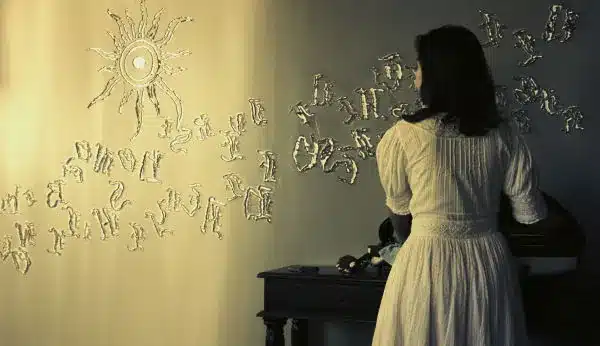
In Nocturne, is the devil a factor?
Although that’s just my opinion, I don’t think the movie involves a real demon. We lack conclusive evidence that an evil power wasn’t at play. The movie, in my opinion, seems to show the slow degeneration of a character who has never known true love or admiration in their lives. Juliet’s life has always been about catching up, especially considering how talented her sister Vivian is. Juliet experiences a great deal of worry as a result of her ongoing struggles and a sense of inadequacy, especially in the eyes of those close to her. Even her mentor advises her not to pursue musical performances since she isn’t good enough and should instead think about teaching.
Juliet begins to perceive her deepest fears as premonitions or supernatural occurrences as her sanity begins to wane.
Max, who is also Vivian’s lover, claims that “Moira suffered some fairly horrible personal traumas” and thinks that Vivian may have been expressing them through her artwork since she was unable to talk about them. Max suggests art therapy, but it’s more likely that you’ve seen these images and are unintentionally transferring them into your regular life.

I agree with Max; it seems like Juliet is a troubled person who is on the verge of a breakdown.
Why did Moira kill herself at the start of Nocturne?
The renowned concerto performance at the academy was to feature Moira, a gifted violinist. But then tragedy happened. Her mother was injured while skiing, and in a fit of desperation, her father set fire to their house while he was inside. As an orphan, Moira experienced unspeakable suffering. She made an attempt to cope by recording her thoughts in a journal, but tragically one day she killed herself.
I concur that it doesn’t look like the devil had anything to do with her choice. It’s possible that Moira’s deplorable circumstances and the enormous anguish she felt motivated her acts.
Dr. Cask, who is he?
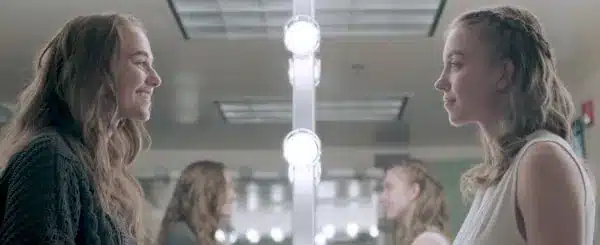
Vivian is one of just the top students that Vivian works with under Professor Dr. Cask. In addition, Cask and Vivian have a hidden romance going on. Vivian may have thought it was just a quick, casual fling, but Cask has grown closer to her. Vivian makes the decision to break things off, and Juliet learns their secret when she overhears Vivian on the phone.
Explaining Nocturne| The Drawings
A book belonging to Moira that is packed with the sad and melancholy artwork she produced while mourning her family is given to Juliet. The first five drawings capture Juliet’s attention, and she wonders about the sixth, which has been pulled out and might have shown Moira jumping over.
Juliet gradually begins to relate the patterns in the book’s illustrations to her own life. In my opinion, she is projecting these happenings based on coincidences, not on supernatural explanations for her experiences with the blinding lights. These drawings appear to frequently change as Juliet looks at them, indicating that her mind has altered them to reflect the circumstances she is now experiencing.
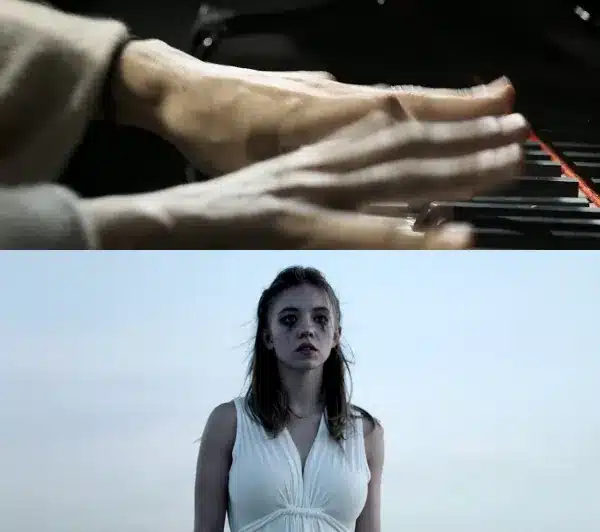
Invocation
A woman is seated and is holding three circles in the image. Juliet makes a connection between this picture and the anxiety medicine she has been taking. She thinks that the drugs are to blame for her fainting at the audition.
Assurance
This illustration depicts a hurt animal. Because her mentor is the one who supports Juliet’s goals the least, she associates this image with him. The concept is that Juliet reprimanding him is symbolised by the stabbing in the artwork. Based mostly on the placement of the hands or fingers in the artwork, she draws an improbable connection between it and her tutor.
Triumph

The angel in this image has fallen. Vivian witnesses Juliet and Max flirting at a party, which causes the sisters to fight. When Juliet is stopped by a light as she approaches a small ledge, Vivian trips as she pursues Juliet. Max is prevented from plunging off the cliff by Juliet. She might have just happened to notice the cliff in the low light, as Juliet has a torch and Vivian and Max are in the dark. Juliet halts but allows her sister to fall.
Vivian being in a similar position as the angel is undoubtedly odd, but as was previously said, Juliet’s views are influenced by the pictures. For instance, instead of both legs being straight as shown in the artwork, Juliet imagines the fallen angel with one bowed leg, similar to how Vivian was lying.
Consummation
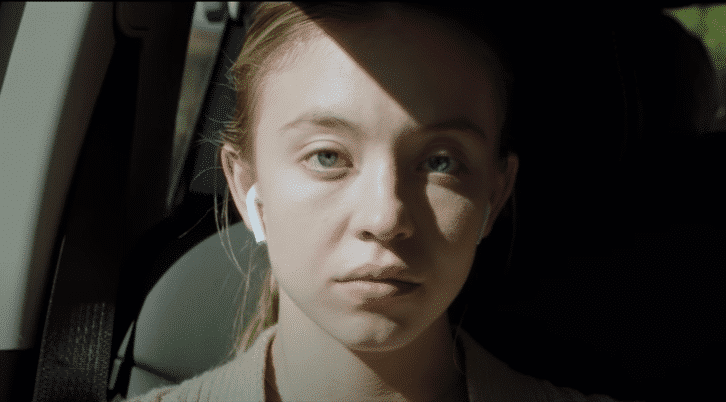
This picture depicts a close relationship between two people. Given the events of “Nocturne,” it is clear that Juliet makes a lot of effort to convince Max to end his relationship with Vivian. After that, Juliet initiates contact with Max and initiates their relationship.
Purification
In this picture, a monarch is clutching flames and a branch. Juliet makes a connection between this and Dr. Cask’s frantic effort to pull his trophy out of the fireplace after Juliet throws it in there. Because she knows he loves her sister but rejects her, she acts out of rage. In addition, he makes it abundantly evident that Juliet has already lost her opportunity to succeed and that true artists would be working at her age.
Day of the Concert
In this picture, a monarch is clutching flames and a branch. Juliet makes a connection between this and Dr. Cask’s frantic effort to pull his trophy out of the fireplace after Juliet throws it in there. Because she knows he loves her sister but rejects her, she acts out of rage. In addition, he makes it abundantly evident that Juliet has already lost her opportunity to succeed and that true artists would be working at her age.
Juliet experiences a very low feeling of self during this moment. She has been rejected and criticised by a variety of persons who have claimed she is untalented. She views herself as a failure regardless of how talented she is, both in her own eyes and in the eyes of people who she looks up to for acceptance. She draws six illustrations, the sixth of which features a woman stepping off a roof with the word “Sacrifice.”
Why Does the Nocturne End? Does Juliet Pass Away?
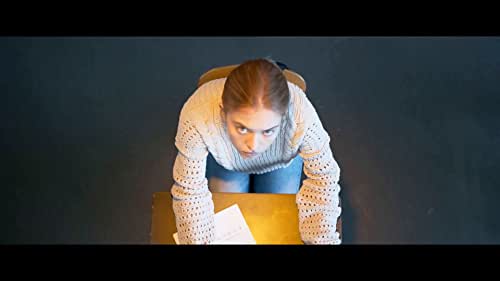
In the terrible climax of “Nocturne,” Juliet dies. She doesn’t perform that evening. This is confirmed by the fact that we observe someone playing the piano while they are covered by sleeves. Juliet had performed wearing a dress with no sleeves.
Following the performance, we notice Vivian in the crowd, proudly applauding, which is surprising given their recent dispute.
The last thing Juliet hears from her sister before she leaves is, “You’ll still be Juliet Lowe, and you’ll still have nowhere to go next year.” Her self-doubt and worry are heightened by these statements. She feels that she and Vivian have both failed, but Vivian at least has a justification for her behaviour. Juliet, on the other hand, believes she is ordinary.
The last scene in “Nocturne” depicts Juliet climbing the roof and stepping over the edge, much as she did in her drawing titled “VI: SACRIFICE.” This “VI” is the Roman numeral 6, which stands for the sixth occurrence—her terrible passing.
Why does no one notice that Juliet is dying in the Nocturne finale?

Since she was 4 years old, Juliet has made numerous sacrifices in pursuit of a lucrative music career. She avoided social events, avoided playing electronic games, and avoided dating. Despite this, Vivian, her sister, always seemed to receive more focus. While Juliet led a reclusive lifestyle, Vivian led a more normal life.
In the climactic climax of “Nocturne,” while really falling to her death, Juliet imagines herself playing brilliantly and enjoying a standing ovation. Even this dramatic moment, when she is being impaled and dying, is a creation of her imagination. She wanted nothing more than to be forgotten, whether she was living or not.
The claim that Juliet lacked skill is untrue because she was an outstanding artist in her own right. Every artist has an own style and set of skills. In contrast, people are frequently compared on the same scale in academic contexts, which isn’t always the best indicator of their genuine potential. Each artist uses their abilities and unique expression to create art. Juliet had the capacity to have a wonderful life, but her own self-doubt prevented her from doing so. During the movie, she briefly displayed self-assurance, but tragically it was fleeting.
The terrible ending of “Nocturne” captures the sad reality that many young people commit themselves because they feel they are failures, frequently as a result of society’s limited concept of success. It’s a moving remark on the expectations and pressures that can produce such disastrous results.
ALSO READ THIS: The Map Of Little Perfect Things| A Summary of the Ending
